Dental treatment
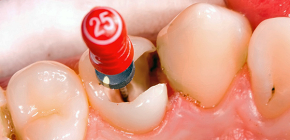
Often, after the treatment of pulpitis, the patient is surprised to find that the tooth for some reason continues to hurt - there can be pain when pressing on the tooth, biting it, or it can ache by itself without any external influence. It would seem that there is nothing to be ill, because the dental nerve was removed! Why, then, does the tooth continue to hurt, how long it will last and, most importantly, what to do in such a situation? Let's understand ...
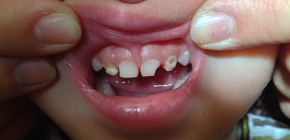
When a child has a toothache, the opportunity to immediately go to the dentist is not always the case, and parents are forced to resort to the use of painkillers to somehow alleviate the suffering of the baby. It is important to avoid gross errors, which not only can increase the pain, but also can provoke further development of the pathology. About what drugs are permissible for use in children and what should be paid attention to when using them, we will go on and talk in more detail ...
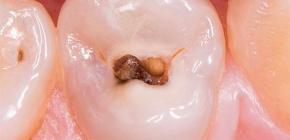
Often, a person begins to think about visiting the dentist only when the carious process, after destroying the tooth enamel, gets to the dentin under it - in most of these cases we are talking about the so-called average caries. Simply put, it is no longer initial, but not too deep. However, despite its moderate severity, such caries can cause a person plenty, and the pain from various stimuli is only a small part of the possible problems ...
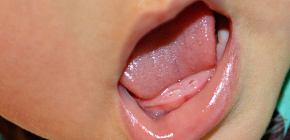
With painful teething in a baby, various pain-relieving gels are popular today, but only a few parents realize that many of them are comparable to placebo (pacifier) in effectiveness. This is especially true of homeopathic medicines, which are often used, for example, in the form of drops, and even in the form of rectal suppositories. Meanwhile, there are a number of really effective means and methods for alleviating the painful sensations in a child when his teeth are cut - we will continue to look at them in more detail ...
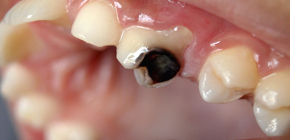
Many people are sure that even a visit to the dentist with the aim of treating ordinary caries "will cost you a lot" is therefore ready to endure a toothache until the last moment. In this case it is useful to know that the gradual transformation of a healthy smile into a leaky picket fence ultimately costs an order of magnitude more expensive than timely installation of a seal. Next, we will talk about how much caries treatment costs today, how the degree of neglect of the carious process affects the final price and how to protect your wallet from appetites of excessively active (in some cases) dentists ...
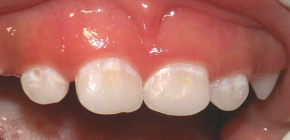
At the initial stages of demineralization of tooth enamel, the carious process often manifests itself as characteristic bright spots on the surface of the teeth - this is the so-called caries in the stage of the stain. Such kind of pathological changes of enamel are especially well visible on the frontal group of teeth. Approaches to the treatment of caries in the stage of white spot today can vary significantly,Moreover, much in this regard depends on the level of the clinic and the professionalism of the doctor - some doctors may suggest not to touch the stain at all, others will offer remineralizing therapy with special gels and fluoro-lac on the tooth enamel. Alternative options are also possible: the treatment of initial caries by infiltration (using Icon technology), the usual reaming of the spot with the formulation of a seal, or even the manufacture of veneer to correct the “facade” as a whole. So what to do in case of a sudden appearance of bright carious stains on the teeth and is it necessary in this case to be treated? Let's understand ...
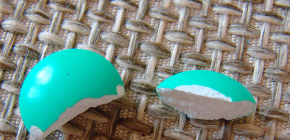
With a strong toothache, it is quite obvious that the sufferer’s desire to take some effective pill as soon as possible, which would save them from exhausting torment for at least a couple of hours. But here is the problem - some pills help well with a mild toothache, but they are almost useless for acute pain, which is typical, for example, of pulpitis or periodontitis. Moreover, the same drug, even powerful enough, can help one person very well and weakly to another.So what to do in case of acute or aching toothache, and what nuances it is important to take into account when choosing painkillers - let's understand ...
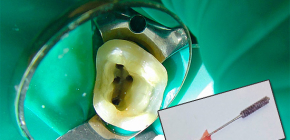
Each person, turning to the dentist with a toothache, wants to get rid of it once and for all. However, it happens that even after the nerve is removed, the canals are cleaned and their fillings are in, the tooth continues to ache. Sometimes a few days it can be painful to touch him even with the tongue. In this case, the patient has quite reasonable questions: why does the pain reappear in the already treated dead tooth, how long will it take and what actions should be taken in such a situation? About this we will continue to talk.
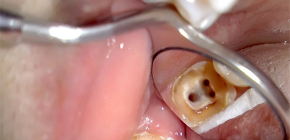
Pulpit three-channel tooth - a phenomenon not only unpleasant, but also often very sensitive to the wallet of a person with average incomes. Let's take a closer look at why it is more difficult and more expensive to treat three channels than one or two, and also what is the pricing policy for the treatment of pulpitis in various dental institutions today ...
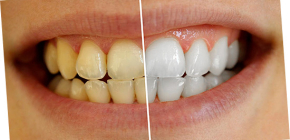
Every year the number of people who want to whiten their teeth quickly and efficiently without visiting the dentist is increasing. However, is it possible to get a well-pronounced whitening effect at home and at the same time not harm the tooth enamel? Next, we will talk about the most effective methods of home teeth whitening and see how badly they harm enamels and how this harm can be compensated ...
Why do I need to treat my teeth? Almost every person at least once in his life thought about this issue. Since ancient times, there were many ways to help with acute toothache, which were based on the knowledge of traditional medicine. In this case, healers, barbers, bath attendants could assist. In most cases, such therapeutic measures sooner or later led to the removal of a diseased tooth.
The appearance of modern equipment and new methods of dental treatment made it possible to increase the effectiveness of care in the most problematic cases, and also to save even those teeth that would have had to be removed before.
What should I do if I have a problem tooth in my mouth?
If for some reason it was not possible to maximize the use of all means and methods for preventing caries before it occurs, and the tooth began to deteriorate, it is necessary to act according to the following scheme:
- First, do not panic. To treat teeth with modern equipment is absolutely not scary.
- Use all known means in the search for a professional dentist therapist. To do this, you can consult with relatives and friends, find reviews about doctors on the websites of clinics and forums. In any case, competent monitoring will allow not only to find a specialist who can safely entrust their health, but also to find out the approximate price range of the upcoming dental treatment.
- Make an appointment with the selected dentist and follow a few basic rules ...
Rule number 1: do not abuse strong drinks the day before the reception and abandon them on the day of the visit to the doctor.
Rule number 2: adjust yourself to the positive with self-control, motivation or breathing exercises. After all, you will not go to the torturer, but to a professional who takes care of the health of your teeth and really makes them better.
Why do you need to follow these rules? In fact, the answer is on the surface. It has been proven that alcohol and stress are, in most cases, serious blockers of the action of anesthesia (“freezing”) of a tooth. Therefore, the practice of “drinking for courage” before treatment at the dentist is unacceptable in our time.
Treat or delete?
At the moment there are specific indications for the extraction of teeth, however, even in the most difficult clinical situations, the dentist can give the right of choice, competently explaining the possible risks and consequences of preserving the tooth. This approach is explained by clear positions that are shared by most dentists in the world:
- No artificial design can ideally replace a lost tooth, especially in functional terms. A tooth is an organ that is given by nature, with a set of unique characteristics for each person. Standard dentures can not always satisfy them, so it is preferable to treat the teeth.
- Virtually any manipulation associated with the treatment of a tooth is the least traumatic compared with removal, implantation, prosthetics.
- Early treatment of the teeth prevents the development of serious complications from the tissues adjacent to the diseased tooth (periostitis, osteomyelitis, sinusitis, etc.)
As a result, everyone chooses a suitable option for himself, but, from the point of view of professionals in this matter, it is easier to stay in all respects on dental treatment than to lose teeth and get a lot of problems in the oral cavity and the body as a whole.
As the well-known wisdom says: “There are teeth — there are problems, those who have no teeth — that problem has even more problems!” (Agadzhanyan EG)
